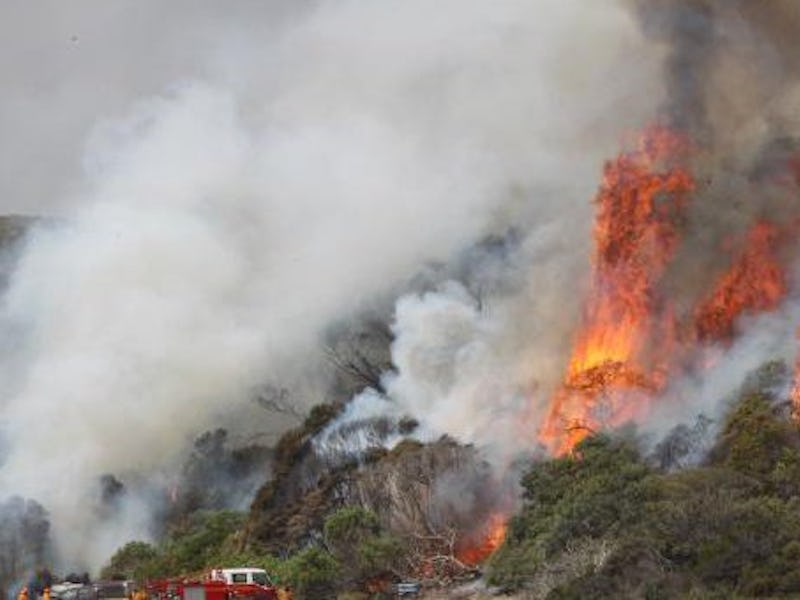Ancient Forests Burn in Tasmania, Some Blame Climate Change
Pine species that date back to the Cretaceous Period can’t recover from the damage.

Primitive forests in northwestern Tasmania that had survived for millions of years are being devastated, burned by bushfires ignited by lightning, with over 400 square miles (105,000 hectares) destroyed since January, an article in Nature stated Thursday.
The woodlands — some of which belong to Australia’s United Nations World Heritage wilderness lands — are ecosystems that aren’t adapted to fire, unlike other regions where plants like Eucalyptus and Banksia have evolved to recover. Instead, these high-altitude forests — home to King Billy pines (Athrotaxis selaginoides) and pencil pines (Athrotaxis cupressoides), some of which over 1000-years-old, are remnants of the time when this part of Tasmania (an island state) was a part of the long-since separated Gondwana supercontinent, over 180,000,000 years ago. Bushfires not only kill the pencil and King Billy trees but terminate the seeds — and then further decimate the peat soils such plants require for growth — leaving the worst-burned forests in an unrecoverable state. The only reason such archaic plants have survived in Tasmania is that these areas are wetter and colder than what is found on the Australian mainland.
However, impending climate change could make such survival for the pines tougher than ever before.
The lightning that is directly responsible for the recent blazes are firing from storms where the rainfall has been evaporating before making ground fall — events once rare in northwestern Tasmania, but now happening with regularity and are considered a result of global warming — and as 2015 was one of the AU state’s driest on record, lower-altitude rainforests that have long-served as a protective firebreak have been weakened by dry conditions. As of this writing, the Tasmania Fire Service reports that three bushfires are currently burning (in Balfour, near Lake Mackenzie and Lorinna) in northwestern Tasmania, among the dozens of locations where fires have since been extinguished. University of Tasmania plant science professor David Bowman told the Australian Broadcasting Corporation Saturday that “This is bigger than us. This is what climate change looks like, this is what scientists have been telling people, this is system collapse.”